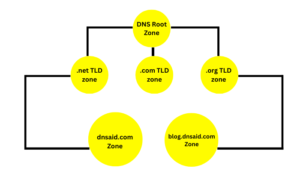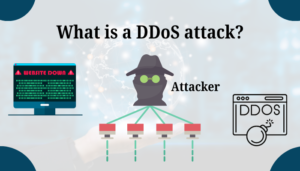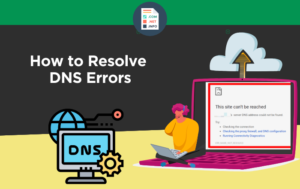In today’s digital age, internet connectivity is the backbone of almost every business operation. Whether it’s running an e-commerce site, managing a corporate network, or supporting cloud-based services, uninterrupted and secure internet access is vital. Imagine a world where your online store goes offline during peak shopping hours or your company’s email servers are down, causing chaos and lost productivity. The reliability of intfernet connectivity can make or break a business, emphasizing the need for robust infrastructure to support seamless operations.
Professional DNS support services are crucial for ensuring reliable, secure, and efficient internet operations. DNS (Domain Name System) is like the internet’s phonebook, translating human-friendly domain names into IP addresses that computers use to communicate with each other. However, managing DNS effectively requires expertise and constant vigilance. Professional DNS support services provide businesses with the expertise and tools needed to maintain optimal online performance, ensure high availability, and safeguard against potential cyber threats. These services are indispensable for any organization that values its online presence and wants to stay ahead in a competitive digital landscape.
What it is DNS and how it works?
The Domain Name System (DNS) is a fundamental component of the internet infrastructure that translates human-readable domain names, like www.example.com, into machine-readable IP addresses, such as 192.168.1.1. This translation process is essential because, while humans prefer to use easy-to-remember names, computers and network devices rely on numerical IP addresses to identify and communicate with each other. When a user enters a domain name in their web browser, the DNS server is queried to resolve the domain name into an IP address, allowing the browser to locate and access the desired website or service.
DNS is often referred to as the “phonebook of the internet” because it plays a crucial role in routing internet traffic to the correct destinations. Without DNS, users would need to remember complex IP addresses for every website they want to visit, which is impractical. DNS ensures that internet navigation is user-friendly and efficient, enabling seamless access to websites, email services, and other online resources. Moreover, DNS supports the scalability of the internet by allowing domain names to be managed and updated easily, ensuring that changes in IP addresses do not disrupt user access.
Common DNS issues and their impact on business operations
Several common DNS issues can significantly impact business operations, including:
- DNS Server Outages: When a DNS server goes down, users cannot resolve domain names, resulting in inaccessible websites and services. This can lead to lost revenue, decreased productivity, and damage to a company’s reputation.
- DNS Spoofing or Cache Poisoning: Cyber attackers can manipulate DNS data to redirect users to malicious sites, posing security risks and potential data breaches. This undermines user trust and can result in financial and reputational damage.
- Slow DNS Resolution: Delays in DNS resolution can lead to slower website load times, affecting the user experience and potentially causing visitors to abandon the site. This can decrease customer satisfaction and impact conversion rates.
- Configuration Errors: Incorrect DNS settings can cause disruptions in email delivery, website access, and other critical services. Proper DNS management is essential to avoid such issues and ensure smooth operations.
Why You Need Professional DNS Support Services?
Enhanced Security
1. Protection against DDoS attacks
Distributed Denial of Service (DDoS) attacks are a significant threat to businesses, aiming to overwhelm a server with excessive traffic and render services unavailable. Professional DNS support services implement robust DDoS mitigation strategies, including traffic filtering and rate limiting. These measures help ensure that legitimate traffic can access the network while malicious traffic is identified and blocked. By continuously monitoring for unusual patterns and spikes in traffic, DNS support services can detect and neutralize DDoS attacks before they impact business operations, maintaining service availability and customer trust.
2. Prevention of DNS hijacking and cache poisoning
DNS hijacking and cache poisoning are techniques used by cybercriminals to redirect users to fraudulent websites, often with the intent of stealing sensitive information. In DNS hijacking, attackers alter DNS records to divert traffic, while cache poisoning involves corrupting the DNS cache with false data. Professional DNS support services offer advanced security protocols to safeguard against these threats. They employ techniques like DNSSEC (DNS Security Extensions), which add cryptographic signatures to DNS data, ensuring its integrity and authenticity. Regular audits and security patches further fortify the DNS infrastructure against vulnerabilities, protecting businesses from malicious redirections and data breaches.
By leveraging professional DNS support services, businesses can significantly enhance their security posture, safeguarding their digital assets and maintaining the trust of their customers.
Improved reliability and uptime
1. 24/7 monitoring and rapid response to issues
Professional DNS support services offer round-the-clock monitoring of DNS servers and traffic to ensure continuous availability and prompt detection of any issues. With 24/7 surveillance, any anomalies, disruptions, or potential threats are quickly identified and addressed. This constant vigilance allows for immediate troubleshooting and resolution of DNS problems, minimizing downtime, and ensuring that your website and services remain accessible at all times. Rapid response teams are equipped to handle emergencies efficiently, restoring normal operations swiftly and preventing prolonged outages that could affect business continuity.
2. Redundancy and failover strategies
To further enhance reliability, professional DNS support services implement redundancy and failover strategies. Redundancy involves deploying multiple DNS servers across different geographic locations. If one server goes down or experiences issues, the traffic can be automatically redirected to another operational server, ensuring uninterrupted service. Failover mechanisms are designed to detect server failures and seamlessly switch to backup servers without any noticeable impact on end-users. These strategies significantly reduce the risk of service interruptions, providing businesses with a resilient DNS infrastructure capable of maintaining high availability even in the face of hardware failures or cyberattacks.
Performance Optimization
1. Faster resolution times
Professional DNS support services optimize the performance of your DNS infrastructure, resulting in faster resolution times. By strategically locating DNS servers closer to end-users through Content Delivery Networks (CDNs) and using advanced caching techniques, these services reduce the latency involved in DNS queries. Faster resolution times translate to quicker website load speeds, enhancing the user experience and satisfaction. This performance boost is particularly crucial for e-commerce platforms and other online services, where speed and responsiveness are key factors in retaining customers and driving conversions.
2. Load balancing for efficient traffic management
Load balancing is another critical performance optimization technique provided by professional DNS support services. By distributing incoming traffic across multiple servers, load balancing ensures that no single server is overwhelmed by too many requests. This efficient traffic management prevents bottlenecks and ensures smooth, consistent performance even during peak traffic periods. Load balancing also improves resource utilization, maximizing the efficiency of your server infrastructure and providing a scalable solution that can grow with your business needs. Enhanced performance and stability lead to better user experiences and can positively impact your website’s search engine ranking and overall success.
Expert Management and Support
1. Access to experienced professionals
Professional DNS support services provide businesses with access to a team of experienced and knowledgeable experts. These professionals have extensive experience in managing DNS infrastructure and are well-versed in the latest technologies, protocols, and security practices. Their expertise ensures that your DNS is configured optimally and maintained correctly, reducing the risk of errors and vulnerabilities. By leveraging their skills, businesses can focus on their core activities while entrusting their DNS management to capable hands.
2. Proactive maintenance and updates
Proactive maintenance is a hallmark of professional DNS support services. This involves regular monitoring, updating, and fine-tuning of DNS settings to ensure optimal performance and security. Updates may include software patches, security enhancements, and configuration adjustments to adapt to changing network conditions and emerging threats. Proactive maintenance helps prevent issues before they occur, ensuring smooth and uninterrupted DNS operations. It also keeps your DNS infrastructure aligned with industry best practices and compliance requirements, reducing the risk of downtime and security breaches.
Choosing the Right DNS Support Service Provider
A. Factors to Consider
1. Experience and reputation
Evaluate the provider’s track record and reputation in the industry. Look for companies with a proven history of managing DNS for businesses similar to yours. Check for customer testimonials, case studies, and industry recognition.
2. Range of services offered
Assess the breadth of services provided by the DNS support provider. Ensure they offer comprehensive solutions, including security measures, performance optimization, monitoring, and support. A provider with a wide range of services can address all your DNS needs.
3. Customer support quality
Customer support is crucial when it comes to DNS management. Ensure the provider offers 24/7 support with quick response times. Look for providers that offer multiple support channels, such as phone, email, and live chat, to address your concerns promptly.
Comparing Top Providers
1. Features and pricing
Compare the features and pricing of different DNS support service providers. Look for transparency in pricing and a clear outline of the features included in each service tier. Consider the value provided for the cost and choose a provider that offers the best balance of features and affordability.
2. User reviews and testimonials
Read user reviews and testimonials to gauge customer satisfaction and the provider’s reliability. Look for feedback on the provider’s performance, customer service, and the overall effectiveness of their DNS support services. Real-world experiences from other businesses can provide valuable insights into the provider’s capabilities.
Conclusion
Professional DNS support services play a critical role in maintaining the reliability, security, and performance of your online operations. They offer enhanced security measures, improved reliability and uptime, performance optimization, and expert management, ensuring that your business stays ahead in the digital landscape.
Investing in professional DNS support services is not just a technical decision but a strategic one. It ensures your business is protected against cyber threats, enjoys uninterrupted service, and provides a seamless user experience, ultimately contributing to your business’s growth and success.
Take a moment to evaluate your current DNS setup. Consider the benefits of professional DNS support services and how they can enhance your business operations. Reach out to a trusted DNS support provider today to discuss your needs and take the first step towards a more secure, reliable, and efficient online presence.



